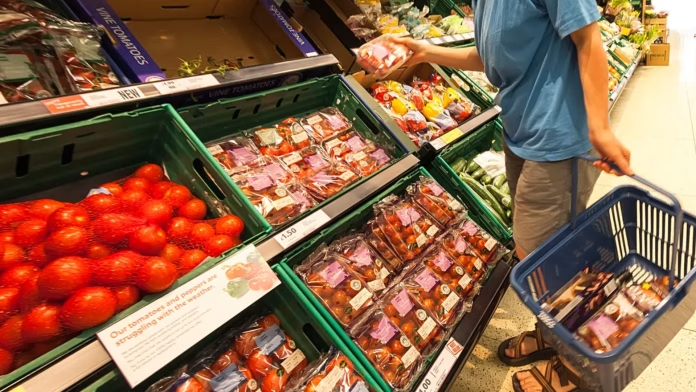The UK witnessed the highest increase in food prices last month, surpassing the record of the past 45 years. This hike has led to inflation remaining above 10% for seven months in a row, exacerbating the cost-of-living crisis. As a result, there has been a surge of government worker strikes.
According to the Office for National Statistics, food prices surged by 19.2% during the twelve months leading up to February, marking the largest rise since August 1977. This announcement was made on Wednesday.
Consumer price inflation decreased to 10.1% overall, a drop from the previous month’s 10.4%, owing to the decline in gasoline and diesel fuel costs. Despite this decline, the March rate of inflation exceeded the economists’ predicted rate of 9.8%.
“The heat has been turned down on the bubbling cauldron of prices, but inflation is still scalding and interest rates look set to be pushed up again to try and cool it down rapidly,” said Susannah Streeter, Head of money and markets at Hargreaves Lansdown in London.
Amidst Russia’s invasion of Ukraine, the British government and Bank of England are finding it challenging to prevent inflationary pressures from becoming entrenched in the economy. In contrast to the UK, where inflation has been above 10% for eight out of the past nine months, the U.S. and the euro-sharing countries witnessed a slower inflation rate of 5% and 6.9%, respectively, last month.
As a result of double-digit inflation, public sector employees such as doctors, nurses, teachers, civil servants, and train drivers have gone on strike due to their wages being negatively impacted by the escalating cost of living.
In an attempt to control inflation, the Bank of England has sanctioned 11 back-to-back interest rate hikes, raising its key interest rate from 0.1% in December 2021 to 4.25% last month. This move has increased borrowing costs for both consumers and businesses.





